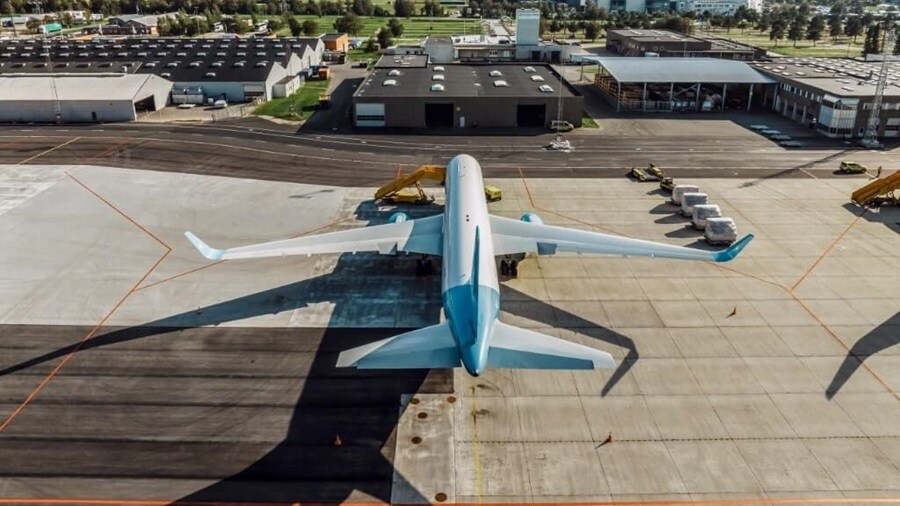It’s an exciting time for the air freight industry.
According to Market Research Future, the global air cargo market is expected to reach some USD217 billion by 2032. The future indeed looks promising — and technology is one of the reasons why.
While the industry hasn’t always been known for being at the bleeding edge of digital innovation, there’s a general acceptance that digitalisation is necessary. For instance, Supply and Demand Chain Executive states that “innovative technological solutions are imperative” in order to “meet the growing demands and challenges of this dynamic industry”. But what does that look like?
In this article, we’ll answer that question by exploring the current state of technology in the air freight industry (the now), where it’s heading (the next) and how you can take advantage.
The now — data integration and booking technology
According to a recent report from The Loadstar, the IATA flagged digitalisation as a key focus area for the air cargo industry in 2024, going as far as to say that: “Digitalisation is still an issue, but is slowly progressing”.
The clearest evidence of this is through more data integration, which is the starting point of all digitalisation strategies. That’s because, until all your data is connected, it’s impossible to create the kind of change the industry demands.
At Maersk, we offer this connectivity through our API and EDI solutions. These combine data from multiple sources across the supply chain into one place, so you get the visibility and control to make the right decisions for your business.
One of the upshots of this data-sharing approach is that it provides digital access to inventory and capacity in real time. This can then inform a whole heap of other processes — the most obvious example being the creation of a better booking system.
Here, real-time information on routes, schedules and capacity is fed from the airline’s back-end operations into its booking system, providing customers with up-to-date information on costs and availability. It’s a whole new experience. One that gives shippers an easier way to make bookings, and air cargo companies a better way of working.
At Maersk, we’ve done this with our instant prices tool. Through automation, it provides airfreight prices on 70,000 trade lanes across more than 90 countries in just a few clicks. If you’d like to see the tool in action, simply follow this link and get instant airfreight prices on all our trade lanes.

The next — AI and airport robotics
So, we’ve looked at where the industry is now. What about where it’s heading?
It should come as no surprise that AI is set to play a major role in the future of the industry. The technology has been at the front of every business professional’s mind since the release of ChatGPT in November 2022.
Of course, potential use cases are being explored for air freight too. But, the truth is, the industry isn’t quite there yet.
A recent survey by Freightos showed that only 14% of logistics companies are already using or piloting AI solutions. That’s a far cry from widespread. That said, the same survey shows that 96% of logistics companies believe they’ll leverage AI in the nearfuture. But how? Well, one potential example is through customs brokerage. The right systems could automate data entry processes and identify any discrepancies in the digital documentation, improving the accuracy of the customs process and accelerating the speed over the border.
Away from AI, some of the most exciting developments are robotics advances at the airport. Take Amsterdam Schiphol airport, for instance. After a two-week pilot project, it has now ordered 19 baggage robots to take over from humans the physically heavy element of lifting suitcases.
Similarly, exoskeletons that reduce muscle and joint strain, lowering injury risks, offer protection against the long-term effects of strenuous work. This helps create a healthier and happier workforce, making the airport a more attractive place to work. At Stuttgart airport in Germany, for instance, these types of bionic solutions have already been implemented. So, they’re on the horizon, just not widespread yet.
Take the next step, with Maersk
While airfreight has traditionally been slow to move on the digitalisation opportunity, through the integration of legacy technology and the modernisation of booking systems, the industry has taken an enormous leap forward. The next step is the widespread adoption of AI and technology solutions that aid the ground handling crew at the airport.
The winners of this opportunity will be those that act on the next step, now. Which is exactly what we’re doing at Maersk. With our API and EDI solutions and our instant prices tool, we’re bringing airfreight into the digital era to provide the best integrated logistics solutions for our customers. — Would you like to join us?
To get instant prices on air freight, visit our online booking tool. For more information on our air freight offering, visit the Maersk Air Freight webpage.
未来,您想随时了解必读行业趋势吗?
您已经完成了,欢迎“登船”!
很抱歉,发送您的联系请求时出现问题。
请查看表单字段,确保所有已正确填写所有必填信息。如果问题仍然存在,请联系我们的支持团队以获得进一步的帮助。
未来,您想随时了解必读行业趋势吗?
使用此表格注册,即可直接在您的邮箱中接收我们的洞察见解,进入一个真正的综合物流世界。简单操作,即从我们为您量身定做的精选文章中获得启发,了解相关行业洞察信息。您可以随时取消订阅。
I agree to receive logistics related news and marketing updates by email, phone, messaging services (e.g. WhatsApp) and other digital platforms, including but not limited to social media (e.g., LinkedIn) from A. P. Moller-Maersk and its affiliated companies (see latest company overview). I understand that I can opt out of such Maersk communications at any time by clicking the unsubscribe link. To see how we use your personal data, please read our Privacy Notification.
By completing this form, you confirm that you agree to the use of your personal data by Maersk as described in our Privacy Notification.













